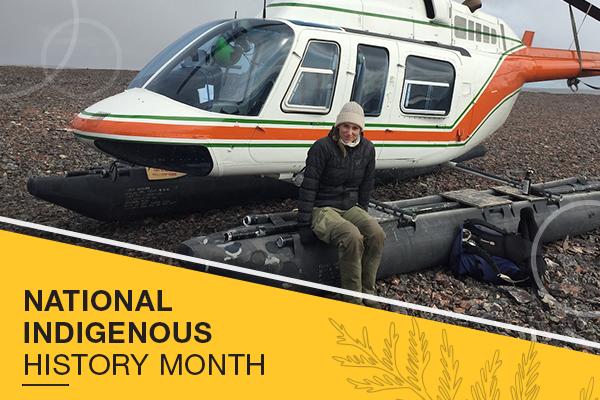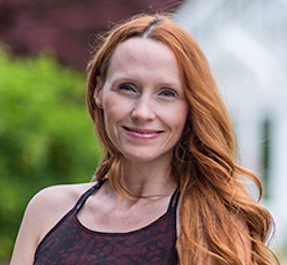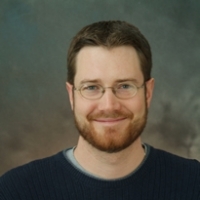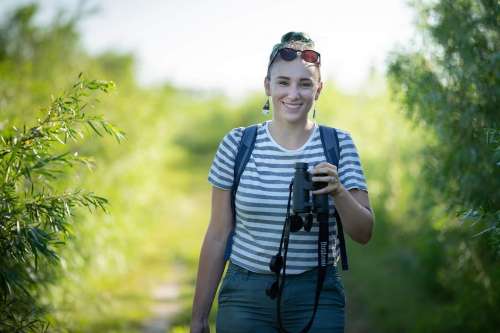
The University of Guelph’s College of Biological Science (CBS) is home to a new initiative intended to create more opportunities for Indigenous students in biological studies.
Called Enhancing Indigenous Research in the Biological Sciences, the program is led by Dr. Melissa Perreault, a neuroscientist in the Department of Biomedical Sciences, an adjunct professor in the Department of Integrative Biology and a member of the Métis Nation of Ontario.
“There is a significant lack of Indigenous perspectives across Canada’s academic system, especially in STEM – science, technology, engineering and math,” said Perreault.
“Enhancing Indigenous Research will not only help Indigenous people who are entering the biological sciences but also help those students who are already here. It aims to foster equity, diversity and inclusion in academia and bring Indigenous perspectives to science.”

Dr. Ryan Gregory, chair of the Department of Integrative Biology, co-developed the initiative. The pair also co-founded the Indigenous Belonging and Connections Committee, intended to integrate Indigenous culture into the department.
The committee will develop workshops and a guest speaker series and is working to incorporate Indigenous ways of knowing and learning into the curriculum.
“The term is ‘two-eyed seeing’ – to see from one eye the strengths of Indigenous ways of knowing and learning and from the other eye the strengths of Western knowledge,” said Perreault. “By using both eyes together, we can generate a collaborative and cross-cultural institution of research and learning that benefits everyone.”
As a guiding principle of the initiative, two-eyed seeing weaves together different but equal viewpoints, she added. “It is looking at things from a much wider perspective and is a partnership.”

Components of the initiative address the barriers Indigenous students may face in pursuing education in the biological sciences.
For example, a new summer research assistantship position in CBS is aimed at improving access to experiential learning opportunities for Indigenous students. New communication strategies are being developed to inform students about supports within CBS and through U of G’s Indigenous Student Centre.
Perreault also established the Indigenous STEM Mentorship Program to provide one-on-one mentorship opportunities with faculty from six departments.
Referring to the Alastair Summerlee Science Complex on campus, she said, “Another essential component is to provide a welcoming and inclusive environment through the integration of Indigenous culture into the science complex through art and the renaming of spaces that will involve consultation with Elders.”
Danielle Nowosad, a graduate student in the Department of Integrative Biology and a Red River Métis, was chosen by Perreault to lead development of the communication strategy within the initiative.

“It’s wonderful collaborating with peers and colleagues who are working hard towards decolonization, two-eyed seeing, increasing Indigenous representation and opportunities for Indigenous students,” said Nowosad. She recently received the University of Guelph’s Kishaadigeh “She Who Guards the Lodge” Award for her commitment to foster community connection and inspire other Indigenous learners.
“I have established a small working group of undergraduate students who identify as First Nations, Inuit or Métis from different programs,” Nowosad said. “In our meetings, we discuss supports available to Indigenous students, best practices for communication strategies and thoughts on how to improve representation and access to resources in the College of Biological Science.”
She is developing an orientation package for incoming, self-identifying Indigenous undergraduate students in all CBS programs that outlines campus health services, funding supports and scholarships, and even how to write an email to a professor.
“Increasing supports and ensuring that incoming Indigenous students know what is available to them will hopefully increase the number of students who participate in CBS programs,” Nowosad said.
“For too long, Indigenous relationships and inclusion have simply been a box to check for institutions. We are hoping to shift institutional policies and values to ensure Indigenous students feel safe, supported and included and have access to opportunities and resources that will help them succeed in academia.”
A major goal of the initiative, said Perreault, is to increase the number of Indigenous students taking part in biological research and to improve supports in CBS.
“Our first aim will be to increase Indigenous student awareness and accessibility to research in biology.”
Contact:
Dr. Melissa Perreault
perreaum@uoguelph.ca
To prepare new and returning students for the fall, we will be sharing information on new programs, student experiences and inspiring stories. Visit the Welcome Home page to learn more about what makes U of G stand out.